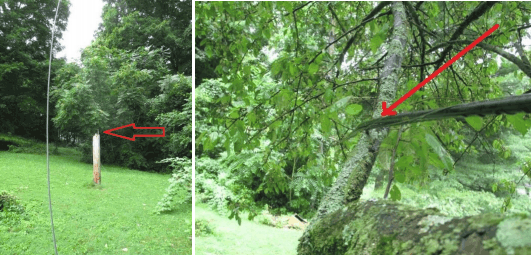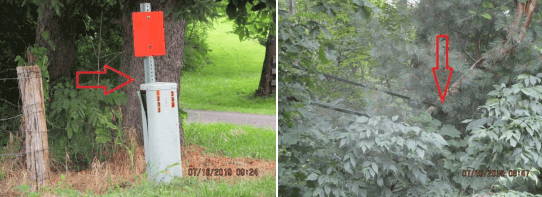
Gov. Newsom
California’s efforts to address the state’s ongoing rural broadband problems made little headway in 2019, as Democratic Gov. Gavin Newsom in the past week vetoed (or allowed to expire) the only two broadband measures surviving the treacherous journey through the California legislature.
Assembly Bill 1212 would have made rural broadband a priority for Caltrans — California’s Department of Transportation and the Department of Water Resources, including broadband on recommended lists of projects for funding consideration by two of the state’s largest pension investment funds: the California Public Employees Retirement System and the California State Teachers Retirement System. Current state law only allows pension boards to invest in in-state infrastructure projects that meet certain fiduciary responsibilities. By expanding investment projects to include telecommunications, funding from two major pension funds might have been unlocked and made available to future rural internet projects.
Assembly Bill 417, also known as the Agriculture and Rural Prosperity Act, included several measures targeting rural farming. Two passages in the bill would have included broadband expansion as a new priority for the California Department of Food and Agriculture (DFA):
Due to the central role of agriculture in rural California, it is necessary to achieve a detailed understanding of the economic value that agriculture brings to rural communities and to identify opportunities to improve agricultural productivity, including by increasing broadband access, advancing agricultural innovation, technology, and education, and supporting a well-trained, productive rural workforce, to benefit rural communities.
[…] Making recommendations to the secretary on actions to further the development of rural agricultural economies, including, but not limited to, increasing broadband access, providing technical, resource, and regulatory compliance assistance, advancing agricultural innovation and technology, establishing programs for education and workforce development, and evaluating recreation and tourism opportunities.
 Several other proposed measures, including AB 1409 which would have created a fund for providing wireless hotspots for students and Wi-Fi service on school buses was killed last spring behind closed doors in the California Assembly’s Appropriations Committee. The annual attempt by AT&T and other telecom companies to write their own laws to deregulate themselves (this time AB 1366), was suddenly pulled from committee consideration by its author back in September.
Several other proposed measures, including AB 1409 which would have created a fund for providing wireless hotspots for students and Wi-Fi service on school buses was killed last spring behind closed doors in the California Assembly’s Appropriations Committee. The annual attempt by AT&T and other telecom companies to write their own laws to deregulate themselves (this time AB 1366), was suddenly pulled from committee consideration by its author back in September.
That the two mild measures made it through the legislature to the governor’s desk was not surprising considering the sheer number of minor bills that pile up on Newsom’s desk. But for both to suffer quiet deaths through veto or expiration despite almost no public opposition speaks to the power of Sacramento insider politics.
 Newsom’s explanation for killing AB 1212 was hardly compelling, as he explained he felt the measure was “unnecessary” because “existing law already encourages public retirement systems to invest in state infrastructure.” But that explanation ignores decades of state government bureaucracy, where agencies zealously guard their funding and protect their own existing project priorities to the hilt. AB 417 would have expanded the mission of the DFA, something the governor argued should only be done in the state budget and only within the specific context of the broader mission of the department, whatever that means. The head of the DFA was likely thrilled anyway.
Newsom’s explanation for killing AB 1212 was hardly compelling, as he explained he felt the measure was “unnecessary” because “existing law already encourages public retirement systems to invest in state infrastructure.” But that explanation ignores decades of state government bureaucracy, where agencies zealously guard their funding and protect their own existing project priorities to the hilt. AB 417 would have expanded the mission of the DFA, something the governor argued should only be done in the state budget and only within the specific context of the broader mission of the department, whatever that means. The head of the DFA was likely thrilled anyway.
Telecom consultant Steve Blum notes Caltrans and other state agencies were unlikely to ever consider rural broadband a funding priority, unless it was intended for their own use. Blum also believes the most likely suspects responsible for convincing the governor to kill both bills were the heads of the departments themselves.
“The simplest explanation for Newsom’s vetoes is that Caltrans, DWR and/or DFA staff asked him to do it, because those are jobs they don’t want to do,” Blum wrote on his blog. “That sort of opposition was why a Caltrans dig once policy bill was watered down in 2016.”
Blum believes the state’s largest phone companies will benefit the most from the outcome of the 2019 legislative session.
“Newsom’s vetoes bolster AT&T’s and Frontier’s rural monopoly business model, which redlines poorer and less densely populated communities and leaves them with low speed DSL service, if they’re lucky enough to get anything at all,” he wrote.
The loss of AB 1212 and 417 won’t change much for Californians waiting for rural broadband. Neither measure would have led to any immediate improvement in internet access in the less populated areas of the state. But the measures would have set a foundation to bring two more state agencies into the fight to tackle rural broadband issues.
Ultimately, just as in other states, a large amount of money will have to be found to wire those still without internet access. Governments and regulators can either make rural internet expansion a contingency of future merger deals or other business-government transactions or find suitable funding to subsidize the cost of internet expansion by for-profit companies, rural co-ops, or local governments willing to tackle the problem on the local level.


 Subscribe
Subscribe Frontier residential customers in Nevada could receive a refund and improved service after a court filing from the Nevada Attorney General’s Bureau of Consumer Protection (BCP) found Frontier’s internet services lacking.
Frontier residential customers in Nevada could receive a refund and improved service after a court filing from the Nevada Attorney General’s Bureau of Consumer Protection (BCP) found Frontier’s internet services lacking. Frontier Communications is preparing a detailed plan for bondholders explaining how the company hopes to cut its $17 billion in debt before it faces the possibility of bankruptcy.
Frontier Communications is preparing a detailed plan for bondholders explaining how the company hopes to cut its $17 billion in debt before it faces the possibility of bankruptcy.
 More Californians are complaining to state officials about their cable television, internet, and phone service than the energy utilities implicated in causing deadly wildfires that left customers without power for days or weeks.
More Californians are complaining to state officials about their cable television, internet, and phone service than the energy utilities implicated in causing deadly wildfires that left customers without power for days or weeks.
 Earlier this year, California’s largest investor-owned utility, Pacific Gas & Electric (PG&E), filed for bankruptcy protection after estimating it was liable for more than $30 billion in damages from recent wildfires. An investigation found equipment owned by PG&E was responsible for starting the worst wildfire in California history. The November 2018 Camp Fire killed 85 people and destroyed the town of Paradise. Yet the Customer Affairs Branch received fewer complaints about PG&E than it received regarding AT&T, Charter Spectrum, Frontier, Cox, and Comcast XFINITY.
Earlier this year, California’s largest investor-owned utility, Pacific Gas & Electric (PG&E), filed for bankruptcy protection after estimating it was liable for more than $30 billion in damages from recent wildfires. An investigation found equipment owned by PG&E was responsible for starting the worst wildfire in California history. The November 2018 Camp Fire killed 85 people and destroyed the town of Paradise. Yet the Customer Affairs Branch received fewer complaints about PG&E than it received regarding AT&T, Charter Spectrum, Frontier, Cox, and Comcast XFINITY.
 Most of the problems are occurring in service areas that Frontier acquired from Verizon Communications in 2010, primarily in southern and eastern Ohio. The regulator’s complaint includes 33 citations against Frontier for extended service outages, some that have lasted for months, as well as allegations the company has failed to provide adequate and reliable phone service in its Ohio service areas. The complaint recommends the Commission “conduct a thorough investigation” on the matter.
Most of the problems are occurring in service areas that Frontier acquired from Verizon Communications in 2010, primarily in southern and eastern Ohio. The regulator’s complaint includes 33 citations against Frontier for extended service outages, some that have lasted for months, as well as allegations the company has failed to provide adequate and reliable phone service in its Ohio service areas. The complaint recommends the Commission “conduct a thorough investigation” on the matter.

